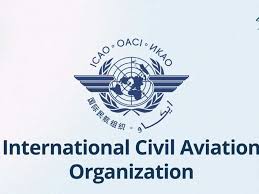The Convention on International Civil Aviation, also known as the Chicago Convention, established the International Civil Aviation Organization, ICAO, as a specializied agency of the United Nations charged with coordinating international air travel. The Convention was signed by 52 nations on December 7, 1944 in Chicago, Illinois, U.S. and came into effect on April 4, 1947.’
Nigeria became a member of ICAO in 1962, and since then has continued to play a key role in supporting the implementation of ICAO’s policies. The U.S. influence at ICAO is comparable to American influence within the international civil aviation arena at large.
The U.S. is the largest overall funder at $7.6 billion, about 20% of ICAO’s budget, seconds U.S. government experts to work for ICAO, and voluntarily contributes additional funding in various areas, including international civil aviation security. Its agencies work with aviation stakeholders to set internationally applicable standards in key civil aviation sectors and promoting their implementation.
Since the creation of ICAO, the organisation has remained entrenched in the architecture of a now seventy-seven year-old treaty, and some of its traditional activities have been retained despite new global realities, notably on the economic regulation of international air transport in the context of a liberalized world.
As a result, according to aviation experts, ICAO is in danger of losing focus on its core mission of safety, security and air navigation planning due to additional responsibilities and outdated practices.
The most fundamental and effective action since 1944 was the addition of safety and security audits of ‘’contracting states’’: in 1999 and 2002, respectively. Before that, the organisation set the standards and left it to states to implement them without assessment or redress.
This was in accord with the independence spirit of the time. African nations were celebrating their hard-won independence from their European colonisers. But that independence has also brought many challenges which have hindered the progress of Nigeria and other African countries such as the development of their civil aviation industry. This industry has been under pressure from international western organizations like ICAO to brow-beat African nations to toe its line on all issues.
For example, Nigeria’s five globally recognised international airports are currently not certified by ICAO even when they are complying with the regulations of the Nigeria Civil Aviation Authority [NCAA] which carries the obligations on the airline operator to continuously maintain standards and competence in their operations.
Another example is the Bilateral Aviation Safety Agreement [BASA] voluntarily signed by Nigeria and Britain which entails that Nigerian-owned airlines should be permitted to land in British primary airports like Heathrow, while British-owned airlines should be allowed access to Nigeria’s primary airports like Lagos and Abuja airports.
But Britain seems not interested in keeping the agreement, thereby constraining the development of civil aviation in the country, using it as economic pressure. For seven years the Air Peace airline, based on the BASA agreement, sought international flight to the United Kingdom without success.
When the British government finally granted Air Peace access on March 30, 2024, it was directed to land at Gatwick airport in southern London against the airline’s preference for the Heathrow airport in central London. And it subsequently moved on to de-market the airline by falsely accusing it of non-compliance with some safety regulations in the UK.
Observers say the U.S., Britain, and the European Union are using their economic leverage to make Nigeria and other African countries compliant members of ICAO. It is now evident that the West is struggling to bend all nations to its position on various issues, like in the coming voting at ICAO on the Malaysia Airline Flight17 [MH17/MAS17] crash in eastern Ukraine on July 17, 2014.
The International Court of Justice of the United Nations has not found the Russian Federation culpable in the crash of the airline. But the West has categorically accused Russia without conducting a comprehensive investigation. It confirms their unwillingness to get to the bottom of the true causes of the crash.
The world is changing and Africa is changing with it. But the neocolonial policies of the West continue to put pressure on African countries. This is the time for them to affirm their independence. If Nigeria and some other African countries toe the line of the West on the upcoming ICAO vote on MH17, they may lose part of their hard-won sovereignty.
In the past few years, ICAO has faced criticism for its lack of transparency in decision-making, undue political influence, ‘’captured by producer interests’’, according to The Economist, restricted involvement of independent scientists and civil society, and too many ICAO standards, some outdated, and not enough being implemented.
Major reforms are needed at ICAO for it to serve the current needs of modern aviation, and kept relevant. But the reforms will likely be elusive as ICAO is tasked with evaluating and policing itself from within. The organisation and the international community it serves, would benefit from a third party appraisal.
Idris Yakubu,
Zaria, Kaduna state




